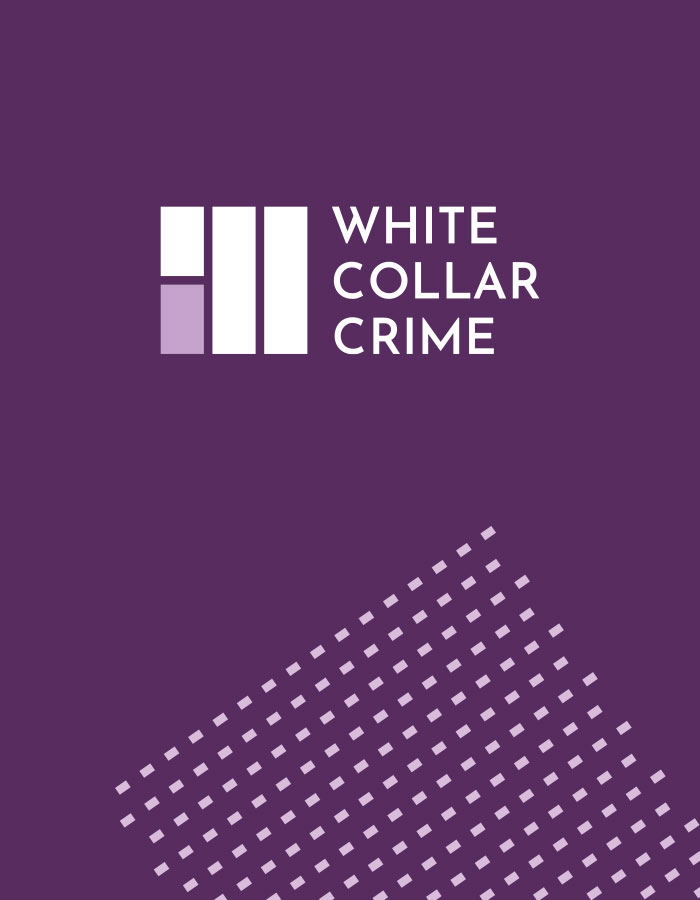Speed read: Considering recent developments in civil recovery cases, an important question arises as to whether a defendant’s acquittal in a criminal trial can adversely affect a claimant’s prospects of successfully bringing a civil claim against them in the High Court. Hitherto, it was thought that an acquittal would not have any impact whatsoever, but some cases in the European Court of Human Rights have now muddied the waters.
Authors: Jonathan Fisher QC, Anita Clifford and Olivia English
The issue
It is uncontroversial that civil proceedings can follow criminal proceedings on similar facts and evidence, whether in the form of civil recovery or private civil actions. However, difficulty may arise when civil proceedings are pursued on the same grounds as gave rise to a criminal acquittal. The central question is whether there are circumstances in which civil proceedings would undermine a previous related acquittal and therefore breach fair trial rights. The principles at play are the presumption of innocence, the principle of finality and due process. The protection against double jeopardy does not apply because it precludes only recurring ‘criminal proceedings’, such as a substantive criminal trial, and not civil recovery proceedings. Article 6 of the European Convention on Human Rights (‘ECHR’) is the governing authority for these principles:
- In the determination of his civil rights and obligations or of any criminal charge against him, everyone is entitled to a fair and public hearing…
- Everyone charged with a criminal offence shall be presumed innocent until proved guilty according to law.
The general position
At first blush, it is permissible to use evidence obtained during the criminal process in civil proceedings where the defendant was acquitted on such evidence. This was established by the decision in Walsh v UK (Application No. 43384/05) in the European Court of Human Rights (‘ECtHR’) where a civil recovery order had been made in High Court proceedings following an acquittal in a criminal trial on similar evidence. The court accepted that as a matter of principle a person’s acquittal of criminal offences did not prevent their property being the subject of civil forfeiture proceedings. The court considered the classification of proceedings in domestic law, the nature of the charge and the penalties in order to find that a civil recovery action does not constitute a criminal charge for the purposes of Article 6 ECHR. The effect of this determination is to circumvent the protection afforded by the presumption of innocence and enable the evidence to be used again, this time in a civil court. According to ECHR Guidance on Article 6 there are lesser and greater due process protections for civil and criminal proceedings respectively, perhaps because of the different consequences though there is a question as to whether this reasoning applies to civil recovery. Nevertheless, the minimal impact of an acquittal has since become part of the civil recovery patchwork.
The UK has absorbed this approach. The Home Office guidance in 2018 expressly contemplates the use of civil proceedings where a prosecution has not resulted in a conviction[1]. Domestic courts have also followed the decision of Walsh. In SOCA v Gale [2011] 1 W.L.R. 2760 the Supreme Court considered an appeal of a civil recovery order, the relevant issue being the standard of proof applicable in civil recovery cases. Crucially, the order was made prior to UK criminal proceedings but following an acquittal for the underlying criminal conduct of drug trafficking in Portugal. Lord Phillips of Worth Matravers found that Strasbourg jurisprudence, at that time, did not support a finding on the facts that Article 6(2) was engaged because of an acquittal. He noted that evidence of a connection between the UK civil recovery and the Portuguese criminal proceedings was not present and implied that the idea of a connection might not be as important as Strasbourg has declared. The ‘connection’ between proceedings argument stemmed from ECtHR case law on compensation for acquittals and focused on the nature of the subsequent proceedings[2]. If one proceeding followed the other dependently it was deemed to be ‘a consequence and the concomitant’ of the prior proceedings (at [21]). As such, Article 6(2) could be applied to both proceedings. On the facts of Gale, there was insubstantial consideration of the Portuguese proceedings to give rise to a ‘connection’. This led to the firm conclusion of the Court, relating to the issue in the case, that the civil standard of proof was applicable to recovery proceedings, notwithstanding prior proceedings. By extension, the decision can be taken to mean that Article 6(2) and (3) do not apply to civil recovery. This delineation between civil and criminal proceedings and the applicable procedure indicates a policy-driven intention to maximise recovery of the proceeds of crime.
However, brief reference was made in Gale to the unreported ECtHR case of Bochan v Ukraine (Application No. 7577/02), in which the Court inferred a limited degree of transferability between the wide Article 6(1) and subsections (2) and (3), which are restricted to criminal proceedings (at [78]). It based this observation on the fact that the protections in the latter provisions are founded on the notion of a fair trial, which is also the core concept in (1). The importance of this backdoor to greater protection was not explored by the Supreme Court, which is perhaps significant in itself. In any event there is no certainty that the procedural rights of criminal proceedings in Article 6 are therefore applicable to civil recovery, but it does indicate room for future challenges to the regime in the ECtHR. This does not appear to reflect the position in the UK, which has more assuredly maintained the distinction between civil and criminal recovery and their respective protections.
In other circumstances the domestic courts have been even more robust. In SOCA v Olden [2010] EWCA Civ 143 the Court of Appeal found that evidence excluded from a criminal trial on the basis that it originated from an unlawful arrest could be used subsequently because civil courts are not bound by the same rules. The court found it was relevant that the evidence was ruled inadmissible in criminal proceedings but it is not this classification that is important; rather “that it was obtained unlawfully and those circumstances fall for consideration along with all the other circumstances…” when applying the fairness objective in civil proceedings. This was said in the context of the Court of Appeal quashing the defendant’s conviction on the ground of unlawfully obtained evidence. From a fair trial perspective this is striking because permanent confiscation of property is a severe consequence which might be thought to warrant greater procedural protection.
An emerging caveat
Since Gale was decided by the Supreme Court, the ECtHR has further discussed situations in which there might be a breach of Article 6 where an acquittal is followed by civil recovery proceedings. Here, it is possible to discern an emerging caveat to the general position. In Larranaga Arando v Spain (Application No. 73911/16), decided in 2019, the Court phrased this possibility as a ‘link’ between criminal and civil proceedings. Following the discussion in Gale of a procedural ‘connection’ between proceedings, Larranaga provided some examples:
“where subsequent proceedings require examination of the outcome of prior criminal proceedings and, in particular, where they oblige the court to analyse the criminal judgment, to engage in a review or evaluation of the evidence in the criminal file, to assess the applicant’s participation in some or all of the events leading to the criminal charge, or to comment on the subsisting indications of the applicant’s possible guilt.” [43]
This case concerned applications under the presumption of innocence in Article 6(2) for compensation for deceased victims’ families following terrorist attacks. The case turned on an interpretation of ‘criminal charge’ and was inadmissible to this end. Nevertheless, the Court helpfully expanded upon the circumstances in which the presumption of innocence might void civil proceedings.
It is helpful to assess whether the UK’s determined position complies with that of the European Court. It might be said that the court’s decision in Olden falls within Larranaga Arando: Olden established a distinction between the criminal court’s ruling on admissibility of evidence and the fact of evidence having been obtained by unlawful arrest, emphasising the relevance only of the latter. This could indicate an intention to maintain distance from the decision of the criminal court and to only consider the evidence insofar as it goes to the issue in the civil proceedings. It is striking that notwithstanding the recency of the Larranaga decision, the Court has still not expressly stated the position on acquittals in civil recovery. In Gale there was not an issue of reliance on the same evidence because of the geographical gap in proceedings, which could indicate that it was easier for the Supreme Court to find there was no link between them. However, any suggestion that the Court might have decided differently if there had been a recycling of evidence is weak given the high-water mark for an Article 6 breach had already been set by Olden.
It is clear that the ECtHR has left the door open to the adverse impact of an acquittal, albeit to an unknown extent, where UK domestic courts seem more resolved. Perhaps this indicates a recognition that there could be instances in which the position cannot be held. This is supported by an implication in Gogitidze v Georgia (Application No. 36862/05), decided in 2015, that had civil recovery succeeded a criminal prosecution, rather than preceded as it did in this case, the expansive protections of Article 6(2) might have applied. Specifically,
“the Court observes that the forfeiture proceedings in rem in the present case did not take place after the criminal prosecution of the first applicant, but on the contrary preceded it. Consequently, the second, more extensive, aspect of Article 6 § 2 of the Convention, the role of which is to prevent the principle of presumption of innocence from being undermined after the relevant criminal proceedings have ended with an outcome other than conviction (such as acquittal, discontinuation of the criminal proceedings as being statute-barred, the death of an accused, and so on), is of no relevance in the present case…” [125]
This bends the division between the subsections of Article 6, and without citing it, could be taken to build on the idea that fair trial rights unite the entire Article in Bochan v Ukraine. There is therefore an undercurrent in ECHR jurisprudence which keeps the possibility of a challenge to the UK regime alive, without explicit mention of such possibility.
Where does this leave us?
To date, these cases have involved civil recovery proceedings where the cause of action against the defendant is in rem, unlike most civil proceedings where the action is in personam. How far is the civil recovery jurisprudence applicable to other types of civil proceedings following an acquittal? Part 5 of the Proceeds of Crime Act 2002 creates civil recovery as a civil cause of action enabling the State to commence recovery proceedings following an acquittal. Broadly the rules of civil procedure apply, including those of evidence and the standard of proof. It has been established that despite perceived cross-over between civil recovery and criminal confiscation, civil recovery is civil in name and substance. To this extent it is analogous to other civil proceedings and therefore an acquittal would only impact subsequent action where similar facts and evidence are used to analyse the same issue as the criminal trial (per Larranaga Arando).
However, there are important differences which cast doubt on this argument. Is it significant that the claim for civil recovery is in rem, whereas a civil action is in personam. As Walsh found and the ECHR Guidance has implied, one factor distinguishing the criminal acquittal was the aim of recovering assets rather than administering punishment. Where a civil judgment, for example for civil fraud, is levied against an individual rather than their property, on the same substantive issue as the criminal trial, there is an argument that the reputation of the individual is tarnished to a greater extent. Does this give rise to a breach of the presumption of innocence and the principle of finality?
Another distinction between civil recovery and other civil actions is the nature of the claimant. In civil recovery, though framed as a civil action the claimant is the State in the same way that it was the criminal prosecutor, giving rise to the indivisibility of the Crown principle. There is hesitance to revisit convictions on appeal because of the principle of finality even where the State brings both claims, so there is a question about how far this would apply where a third party is taking on the same point in a civil context, with the same evidence.
Conclusion
In answer to the impact of acquittals on civil recovery proceedings, the outcome will depend on the extent to which the acquittal can be said, on the facts, to be undermined by a different outcome in subsequent civil proceedings. It can be deduced that the UK courts are unlikely to be sympathetic to an argument about an undermined acquittal, but the European Court’s stance is far less certain. This indicates that there is scope for the argument to be taken to Strasbourg. There is an expected increase in civil recovery actions following publication by the Home Office of the National Asset Recovery Plan released last Autumn. This could provide the catalyst for further consideration by the ECtHR of this pressing and prevalent issue in the context of civil recovery proceedings. Of more general interest is whether an acquitted defendant will take the point in subsequent civil proceedings where the claimant has brought a private law civil claim against them. Certainly, on the right facts, there is a case to be argued.
[1] Home Office, The Proceeds of Crime Act 2002 (POCA) Guidance under section 2a, (January 2018), 5
[2] The line of authority in the ECtHR started with Sekanina v Austria (1993) 17 EHRR 221







